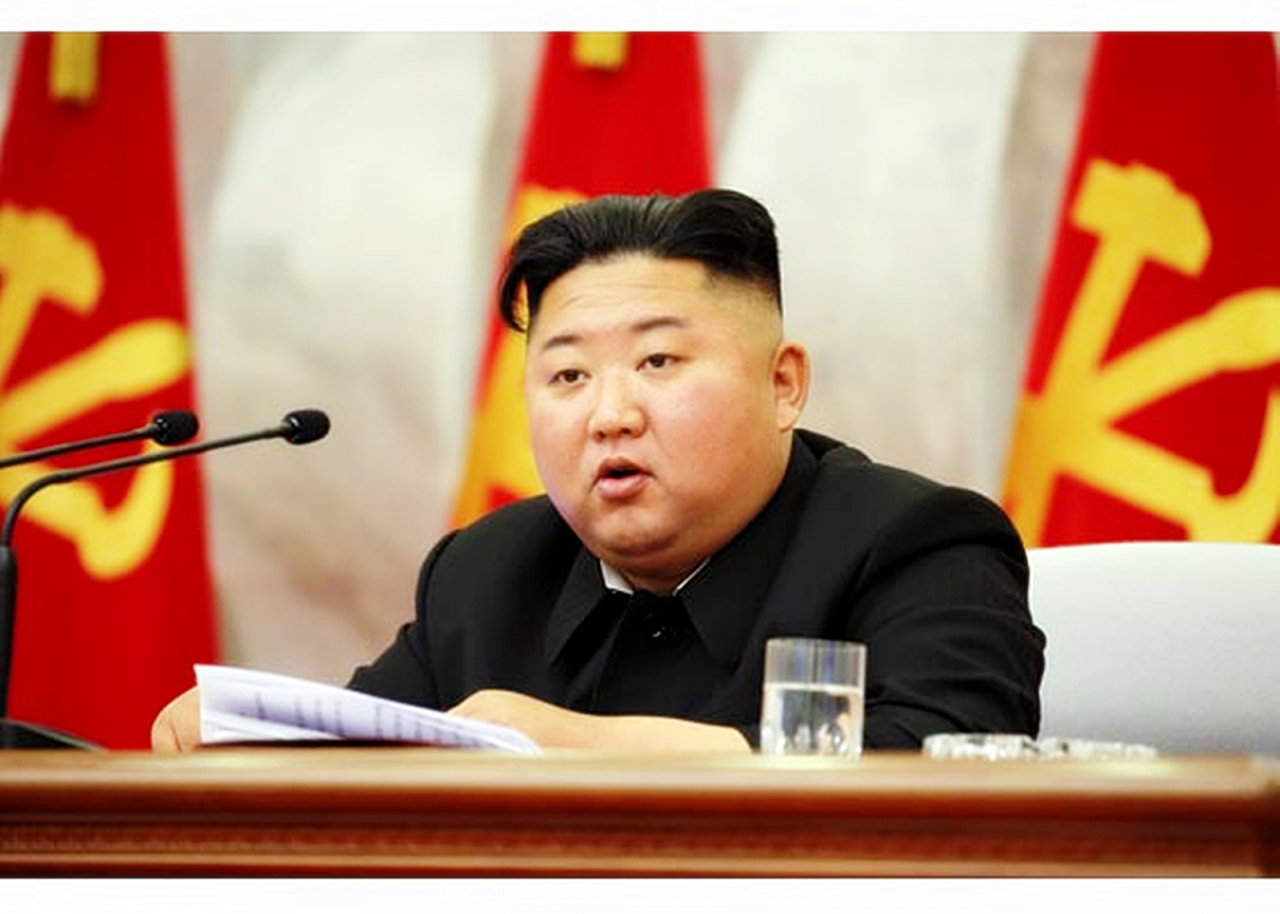[Herald Interview] 'Seoul needs to ask NK to refrain from provocations'
By Ahn Sung-miPublished : Nov. 11, 2020 - 17:11

After four tumultuous years of the Donald Trump presidency, countries around the world are trying to figure out what President-elect Joe Biden’s America will mean for them.
With Biden’s win on pledges to take the nation on a very different path from Trump on every front -- from COVID-19 responses and the economy to foreign policy -- a lot is at stake for Seoul, Washington’s key ally on issues from security to trade and North Korea diplomacy.
The Blue House appears to be bracing for the next administration with both anticipation and concern. Biden’s promises to rebuild alliances are a boon for President Moon Jae-in, who has long sought to settle some thorny bilateral issues, such as the stalemate in defense cost-sharing talks. But Seoul’s push for engagement with Pyongyang could be jeopardized as Biden will likely double down on pressure against the North, insisting that it give up its nuclear arsenals before making any friendly gestures.
With only two years left in office, hoping to break the impasse between the two Koreas and take major strides toward denuclearization during the remainder of his term, Moon is likely to feel pressure to put inter-Korean issues at the top of Biden’s list of policy priorities. Korea experts in the US, however, called for patience, saying it could take several months for the incoming administration’s policy on Pyongyang to take shape.
“President-elect Biden has signaled that the COVID-19 pandemic is the absolute top priority for the US, as it remains for every country, which will also reduce the bandwidth of the government for addressing other issues,” said Toby Dalton, co-director and senior fellow of the Nuclear Policy Program at the Carnegie Endowment for International Peace.
But that doesn’t mean the incoming Biden administration will overlook issues related to the Korean Peninsula, as there are many “front-burner” issues that demand attention, such as defense cost-sharing negotiations, policy coordination on North Korea and trade policy, he added.
“In terms of what South Korea could do now through the transition, it would be useful to encourage North Korea to refrain from taking actions to draw attention to its displeasure with the status quo,” he said. “Such actions -- like a missile test -- are unlikely to speed up a more flexible US approach to denuclearization and, indeed, could narrow the available political space for the Biden administration to establish a new US policy.”
Considering North Korea’s track record of ratcheting up tensions early in a new US administration in a bid to grab the new president’s attention and gain the upper hand in future negotiations, the reclusive regime might conduct a nuclear or long-range missile test, North Korea watchers have warned. Such provocations could be detrimental to the peace process, as they could solidify a hard-line stance from Biden early on in his term and shut down any chance of talks before any policy reviews take place.
Going forward, experts agree, there is a need for a coordinated response from Washington and Seoul, including tougher sanctions against the regime, which has significantly expanded its arsenal even under the watch of Trump.
“The Trump approach failed -- it actually allowed North Korea to grow its nuclear and missile forces, and the Biden team knows that,” said Bruce Bennett, a senior defense analyst at Rand Corp. “President Trump gave Kim Jong-un substantial recognition as an empowered national leader in the three meetings they had and yet did not even get a nuclear production freeze, let alone denuclearization.”
“While Seoul, and Washington, should repeat its willingness for dialogue, neither should relax sanctions until the North Korean behavior which triggered the sanctions has been reduced or eliminated,” said Bruce Klingner, senior research fellow at the Heritage Foundation, noting Pyongyang’s repeated insults and threats despite Seoul’s engagement efforts.
Meanwhile, Bennett suggested a “carrot-and-stick” approach, stressing that getting North Korea to denuclearize is one of the most pressing tasks ahead for Moon. “Offer North Korea benefits, like aid packages, if it does what it has already committed to do, and impose sticks when it does not,” he said.
As one “carrot,” Bennett recommended, Biden could send regular humanitarian shipments of medical supplies to Pyongyang as long as there have been no North Korean provocations in the last six months. “Then if the North Koreans don’t get this humanitarian package each month, it will be due to Kim Jong-un’s provocations,” he said, adding that the president-elect should declare this rather than negotiate, giving the Kim regime an incentive not to provoke the US before his term starts in January.

Analysts agree that Biden, who served as vice president for eight years under President Barack Obama, will deal with North Korea in a very different manner from Trump, who said his great “friendship” with the North Korean leader would help the two countries make headway on the regime’s disarmament.
Biden’s approach will be “policy over personality,” according to Klingner. “Biden pledged an end to ‘bromance’ diplomacy as well as conditioning future summits on actual progress toward denuclearization in working-level meetings,” he said.
“It seems obvious that President-elect Biden will not flatter Kim Jong-un in public remarks, though perhaps they could still exchange letters that would facilitate results from experts-level diplomacy,” said Dalton.
As to the bilateral issues, Biden’s commitment to fixing relationships with US allies gives Seoul some breathing room to resolve pending issues, including the deadlocked talks on renewal of the Special Measures Agreement, the pact that governs the upkeep of the roughly 28,500-strong US Forces Korea.
“The most immediate and significant difference of a Biden administration will be in how the US treats its allies,” said Klingner. “Biden will return to a traditionalist US view of alliances that is based on shared values, principles and objectives rather than transactional relationships focused on allies’ monetary contributions.”
“I could imagine a settlement of the SMA issues could happen rather quickly,” said Dalton. “A troop reduction may still take place if the two governments both support it,” he said, adding that the possibility of a troop cut could be tabled, considering the broader context of diplomacy with Pyongyang and other future challenges.
“The Moon administration could tell President-elect Biden that it needs his help,” said Bennett. “It needs to resolve the 2020 SMA by concluding a one-year agreement at the level South Korea has already offered so that it is not hanging over the alliance. The Korean government could then say that it is interested in a five-year agreement, but wants to help its citizens understand why it is paying so much.”
Seoul has offered to increase its share by 13 percent from last year’s SMA, when it agreed to pay around 1.04 trillion won ($874 million), but Trump is demanding a 50 percent hike.
By Ahn Sung-mi (sahn@heraldcorp.com)











![[Today’s K-pop] BTS pop-up event to come to Seoul](http://res.heraldm.com/phpwas/restmb_idxmake.php?idx=644&simg=/content/image/2024/04/17/20240417050734_0.jpg&u=)





![[KH Explains] Hyundai's full hybrid edge to pay off amid slow transition to pure EVs](http://res.heraldm.com/phpwas/restmb_idxmake.php?idx=652&simg=/content/image/2024/04/18/20240418050645_0.jpg&u=20240418181020)

![[Today’s K-pop] Zico drops snippet of collaboration with Jennie](http://res.heraldm.com/phpwas/restmb_idxmake.php?idx=642&simg=/content/image/2024/04/18/20240418050702_0.jpg&u=)